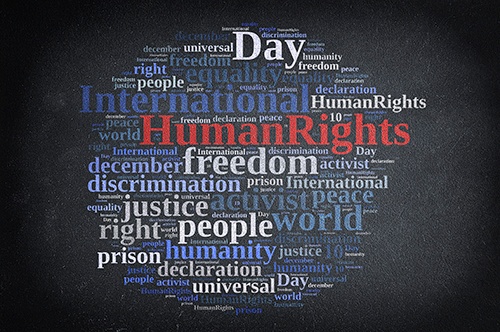
As the world marks Human Rights Day, the widening societal inequalities brought into focus by the pandemic are a stark reminder of the action needed to advance human rights. The role that companies play, in terms of understanding how their behavior contributes towards respect for human rights, is therefore crucial.
Under the theme “Recover better – stand up for human rights.” the United Nations is calling for human rights to be positioned at the center of COVID-19 recovery efforts by applying “human rights standards to tackle entrenched, systematic, and intergenerational inequalities.”The GRI Standards provide the platform for companies to disclose their human rights impacts, with steps underway to further strengthen reporting requirements, including closer alignment with the UN Guiding Principles on Busines and Human Rights. In addition, GRI topic standards address key human rights issues such as non-discrimination, forced labor, child labor, and the rights of indigenous peoples.
However, as set out in the 2020 Corporate Human Rights Benchmark, many companies lag behind when it comes to human rights reporting. Even where they disclose such information, the quality and effectiveness of due diligence processes varies and remains difficult to evaluate.
Peter Paul van de Wijs, GRI Chief External Affairs Officer, said:
“Ensuring respect for human rights is essential behavior for any responsible business. We see transparency as an enabler for systematic change and therefore disclosure requirements are an essential component for human rights due diligence.
To be effective, due diligence must ensure public reporting based on standards developed in the public interest, through an independent and multi-stakeholder process, and that are aligned with global instruments. This is the approach we take in the development of the GRI Standards.
As revealed in new research from KPMG, the GRI Standards are used by over two thirds of 5,200 leading companies across 52 countries. Adhering to globally adopted standards means reporting on human rights impacts can be more consistent and comparable, which in turn supports higher quality and more effective disclosure.
Let’s not allow Human Rights Day to simply be a date on the calendar. Collectively –policy makers, companies and civil society – must redouble efforts to achieve the transparency on human rights needed to drive forward progress.”
The review of the GRI universal standards proposes changes that ensure human rights-related reporting will meet expectations under key intergovernmental instruments, as set by the UN and OECD. This sees the addition of disclosures on the policy commitment to respect human rights, how it is embedded in the organization, and the prioritization of human rights impacts based on their severity.
GRI is engaged with the European Commission’s initiative on Sustainable Corporate Governance to establish mandatory human rights and environmental due diligence legislation.
A 2019 GRI publication analyzed the National Action Plans (NAPs) on Business and Human Rights produced by governments, to provide policy recommendations on strengthening business accountability.


